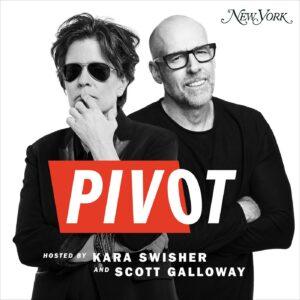
In this episode of the PBD Podcast, host Patrick Bet-David interviews Bob Woodson, a civil rights activist, community development leader, author, and founder of the President Woodson Center. They discuss Woodson’s work in revitalizing low-income communities, his views on government programs, and the importance of self-reliance and personal responsibility. Woodson challenges the revisionist history of America and encourages a more nuanced understanding of the black community. He also addresses the role of race in politics and the need for investment in civic institutions. This episode provides valuable insights into the challenges and solutions for low-income communities.
Bob Woodson, founder of the President Woodson Center, has dedicated his life to supporting neighborhood-based initiatives that revitalize low-income communities. Through programs such as after-school programs, job training programs, and crime reduction initiatives, Woodson has helped over 2,600 community groups in 39 states. His focus on capacity building and social entrepreneurship has shown that change is possible in even the most challenging communities.
In his book “Red, White and Black: Rescuing American History from Revisionists and Race Hustlers,” Woodson challenges the revisionist history of America and encourages a more nuanced understanding of the black community. He believes that the black community should not be defined solely as victims of oppression and that solutions should not have winners and losers. By looking at the evidence and understanding the past, Woodson challenges the prevailing narratives about racism and encourages a more balanced perspective.
Woodson’s own upbringing in a low-income, segregated community has shaped his belief in the importance of personal responsibility and self-reliance. He shares stories of strong surrogate father figures and a community emphasis on education, which instilled in him a sense of self-reliance and the understanding that individuals have the power to shape their own destinies. Woodson challenges the notion that the civil rights movement was solely focused on addressing systemic oppression, and instead advocates for a mindset of self-help and personal responsibility within the black community.
Woodson highlights the unintended consequences of social policies and the morphing of the civil rights movement into a race grievance industry. He points out that a significant portion of the 22 trillion dollars spent on programs to aid the poor actually went to those who served the poor, rather than directly benefiting the poor themselves. Social policies incentivized single parenthood and weakened the nuclear family structure, leading to an increase in single-parent households. Woodson argues that these policies have had detrimental effects on low-income communities, and a reevaluation is necessary.
The Woodson Center takes a proactive approach to understanding and supporting successful households in low-income communities. By investing in institutions within these communities and encouraging individuals to speak up for themselves, Woodson aims to create new heroes and improve the quality of life. He emphasizes the importance of independent education and storytelling to preserve and share stories that are often suppressed in mainstream narratives. Woodson believes that investing in communities and institutions is crucial for creating positive change and supporting the development of strong, self-reliant individuals.
Bob Woodson’s work in community development and his challenges to revisionist history provide valuable insights into the issues facing low-income communities and the importance of personal responsibility and self-reliance. By investing in communities and institutions and encouraging independent education and storytelling, Woodson aims to create positive change and support the development of strong, successful individuals. His message of self-help and the need for a more nuanced understanding of the black community challenges prevailing narratives and offers a path forward for revitalizing low-income communities.